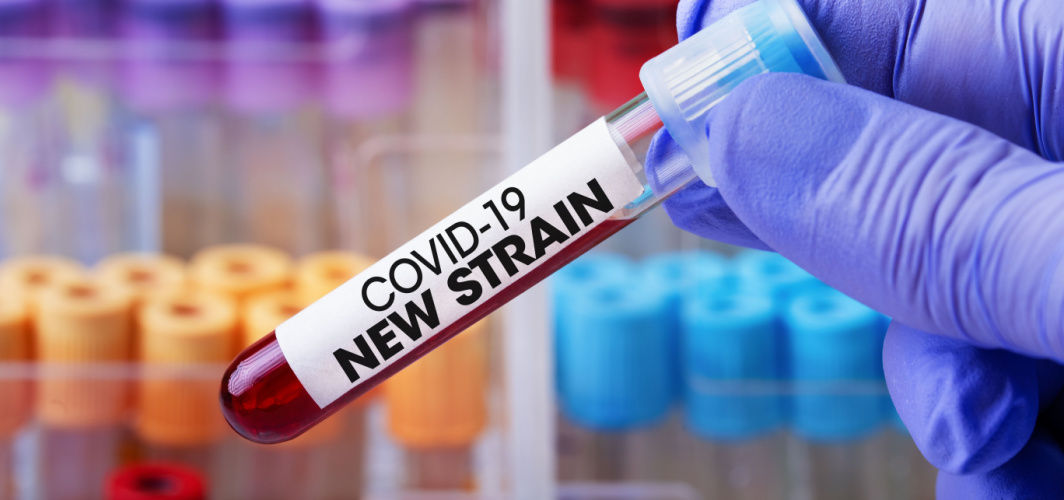General Health
Chickenpox Diet: What To Eat And What Not To Eat
7 min read
By Apollo Pharmacy, Published on - 05 September 2023
Share this article
0
0 like

Chickenpox is a highly contagious viral infection characterised by itchy red blisters that appear all over the body. While the symptoms can be uncomfortable, proper nutrition plays a crucial role in supporting the immune system and aiding in a speedy recovery. Consuming a well-balanced diet is essential to provide the body with the necessary nutrients for optimal healing. In this blog, we will delve into the vital aspects of a Chickenpox diet, guiding you on the right foods to embrace and those to steer clear of.
Foods to Include in Your Diet During Chickenpox
When dealing with chickenpox, it is important to focus on foods that can aid in the healing process and boost your immune system. Here's a list of foods that you should include in your diet:
1. Fruits
Citrus fruits are rich in Vitamin C and can help strengthen your immune system. They include:
- Oranges
- Lemons
- Grapefruits
Other fruits that are beneficial due to their high nutrient content contain Folate, Potassium, Vitamin C, Vitamin K, and Vitamin A. They include:
- Papaya
- Mangoes
- Guava
2. Vegetables
Leafy greens provide essential vitamins and minerals such as Vitamin A, Vitamin C, Vitamin K, Iron, Potassium, and Calcium that can support your body's healing process. Some vegetables include:
- Spinach
- Carrots
- Bell peppers
- Broccoli
3. Protein sources
During chickenpox, it is crucial to maintain good nutrition to support your body's immune system and aid in the healing process. Protein plays a vital role in repairing and rebuilding tissues in those affected by the virus.
Furthermore, consuming an adequate amount of protein-rich foods can help speed up your recovery and minimize complications. Make sure to consume the following sources of protein:
- Lentils
- Tofu
- Yoghurt
4. Dairy products
Dairy products are good sources of calcium and can help in the healing of skin lesions. Adequate calcium intake ensures proper wound healing by supporting cell growth and regeneration.
It helps in the development of new skin cells, minimising scarring and promoting faster recovery from chickenpox lesions. Some dairy products to include in your diet are:
- Milk
- Paneer
- Buttermilk
5. Healthy fats
When it comes to healthy fats, they play a vital role in supporting your immune system and reducing inflammation. They can be found in:
- Almonds
- Walnuts
- Flaxseeds
- Chia seeds
- Olive oil
6. Staying Hydrated
Staying hydrated is crucial during chickenpox, as the illness can cause high fever and sweating, leading to dehydration. Drinking plenty of fluids helps replace the lost fluids and prevents complications. Make sure to drink plenty of:
- Water
- Herbal Juices
- Fruit-infused water
- Fresh fruit juices (without added sugar)
Foods to Avoid During Chickenpox
While there isn't a specific diet for chickenpox, there are certain foods you should avoid to prevent aggravating symptoms.
1. Spicy and Oily Foods
Spicy and oily foods, in particular, can worsen itching and irritate the skin. Spicy foods contain capsaicin, which can cause skin irritation and exacerbate itching.
It is best to steer clear of deep-fried food and snacks like:
- Samosas
- Pakoras
- Greasy curries
- Heavily spiced dishes.
2. Excess Sugar and Processed Foods
High sugar intake has been shown to have a negative impact on immune function, which can slow down the healing process and make you more susceptible to complications. To avoid excess sugar, it is best to steer clear of sugary drinks like sodas and packaged fruit juices.
Similarly, desserts can put additional stress on your immune system and hinder the recovery process. They include:
- Cakes
- Cookies
- Ice cream
- Chocolate
2. Allergenic Foods
Allergenic foods should be avoided as they can potentially trigger allergic reactions and further worsen the symptoms of chickenpox. Some common allergens include:
- Peanuts
- Shellfish
- Eggs
Soothing Foods for Sore Throat
When you have chickenpox, it's not just the itchy blisters that can cause discomfort; a sore throat is also a common symptom. Here are some recommendations to help alleviate the pain:
- Warm liquids: Drinking warm liquids can help soothe a sore throat. Herbal teas such as chamomile or peppermint tea can have a calming effect. Adding a teaspoon of honey and lemon to warm water can also be beneficial.
- Honey-lemon water: The combination of honey and lemon has natural antibacterial properties and can help relieve inflammation in the throat. Mix a tablespoon of honey with the juice of half a lemon in warm water and sip on it throughout the day.
- Soups: Enjoying warm, comforting soups is not only nourishing but can also provide relief for a sore throat. Opt for broths or vegetable-based soups that are easy to swallow and gentle on the throat.
Practical Tips for Meal Planning and Preparation
During chickenpox recovery, choosing easily digestible foods is essential to support the healing process and prevent any discomfort.
1. Easy-to-Digest Meals
Here are some practical tips for meal planning and preparation:
- Opt for light meals that are gentle on the stomach and easy to digest.
- Khichdi, a combination of rice and lentils, is a great option as it provides carbohydrates and proteins in a simple form.
- Dal soup, made from lentils, is rich in protein and can be easily consumed.
- Rice porridge is another excellent choice as it is soft, easy to swallow, and provides energy.
- Vegetable broth is not only soothing but also packed with vitamins and minerals.
- Steamed vegetables are gentle on the digestive system and provide essential nutrients.
2. Food Safety Measures
By following these guidelines, you can help prevent additional infections and promote a speedy recovery.
- Emphasise the need for proper food hygiene: Chickenpox is a highly contagious disease, so it's crucial to maintain good food hygiene practices. This includes washing your hands thoroughly with soap and water before handling any food items.
- Properly cook ingredients: Make sure that all the ingredients you use in your meals are cooked thoroughly to kill any potential bacteria or viruses. Avoid undercooked or raw meats, as they can pose a risk of contamination.
- Avoid cross-contamination: Keep raw and cooked foods separate to prevent the spread of bacteria. Use separate cutting boards and utensils for raw and cooked ingredients, and wash them thoroughly after each use.
- Store food properly: Refrigerate leftovers promptly in covered containers to prevent the growth of harmful bacteria. Ensure that your refrigerator is set to the appropriate temperature (below 5°C) to maintain freshness.
Conclusion
When it comes to managing chickenpox, nutrition plays a crucial role in supporting the body's healing process. While there isn't a specific diet for chickenpox, it is important to focus on foods that can boost the immune system and aid in recovery. Remember, individual needs may vary, so consulting a healthcare professional is advised to tailor your diet to your specific condition. By making informed choices about what to eat and what to avoid, you can play an active role in easing the discomfort of chickenpox and promoting a speedier return to health.
Necessary vitamins and minerals can help accelerate the healing of chickenpox.
Explore Nutritional Supplements
FAQs
Q. Should I avoid certain foods during chickenpox?
Yes, it is recommended to avoid certain foods that can aggravate symptoms or hinder the healing process. These include spicy and oily foods, as they can cause itching and irritation on the skin. Additionally, avoid citrus fruits and acidic foods as they can irritate mouth sores.
Q. Can I consume dairy products during chickenpox?
Yes, you can consume dairy products unless you have a specific lactose intolerance. Opt for low-fat options like yoghurt and milk to fulfil your calcium requirements.
Q. Should I drink plenty of fluids during chickenpox?
Yes, it is crucial to stay hydrated during chickenpox. Drink plenty of water, herbal teas, and fresh fruit juices to prevent dehydration.
Q. Are there any dietary restrictions after recovering from chickenpox?
There are usually no specific dietary restrictions after recovering from chickenpox. However, it is advisable to continue following a balanced diet to maintain overall health.
Q. Can I drink alcohol during chickenpox?
It is best to avoid alcohol as it can weaken the immune system and interact with medications.
General Health
Frequently Asked Questions
Should I avoid certain foods during chickenpox?
Should I avoid certain foods during chickenpox?
Leave Comment
Recommended for you

General Health
Pirola: All You Need To Know About This New COVID Variant
Get the latest updates on the new COVID variant Pirola, including its characteristics, transmission and impact on vaccine effectiveness.

General Health
Brain Boosting Supplements: Bye or Buy?
We all want that easy life where supplements do everything from helping us lose weight to improving our collagen to improving our brain health. However, in the end, it is all about our lifestyle adjustments. Brain-boosting supplements are a rip-off! Here's why you shouldn't buy them, as well as what else you may do to boost your cognitive performance! To find out, read this blog.

General Health
How To Make Your Gym Sessions Effective? Quit These 5 Bad Habits Now
If you work out every day and are still way too far from achieving your fitness goals, then you must be doing something wrong. Certain habits can make your exercise sessions less productive than you expect.
Subscribe
Sign up for our free Health Library Daily Newsletter
Get doctor-approved health tips, news, and more.
Visual Stories

Could There Be More to Your Snore?
Tap to continue exploring
Recommended for you

General Health
Pirola: All You Need To Know About This New COVID Variant
Get the latest updates on the new COVID variant Pirola, including its characteristics, transmission and impact on vaccine effectiveness.

General Health
Brain Boosting Supplements: Bye or Buy?
We all want that easy life where supplements do everything from helping us lose weight to improving our collagen to improving our brain health. However, in the end, it is all about our lifestyle adjustments. Brain-boosting supplements are a rip-off! Here's why you shouldn't buy them, as well as what else you may do to boost your cognitive performance! To find out, read this blog.

General Health
How To Make Your Gym Sessions Effective? Quit These 5 Bad Habits Now
If you work out every day and are still way too far from achieving your fitness goals, then you must be doing something wrong. Certain habits can make your exercise sessions less productive than you expect.